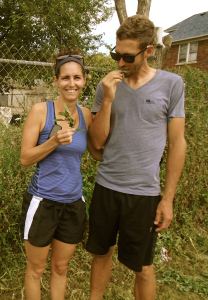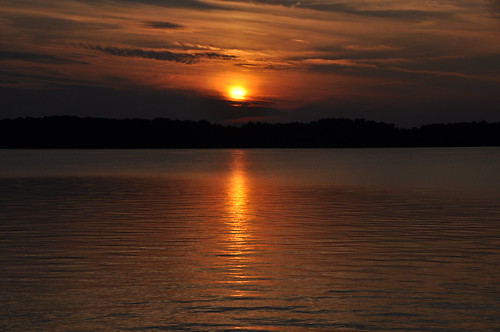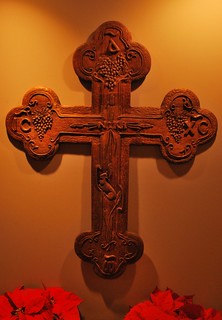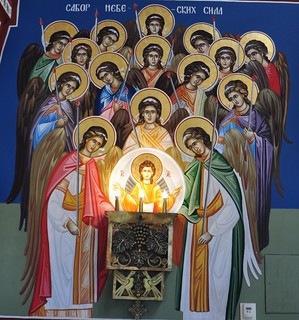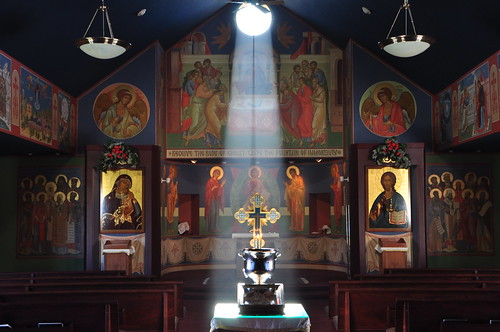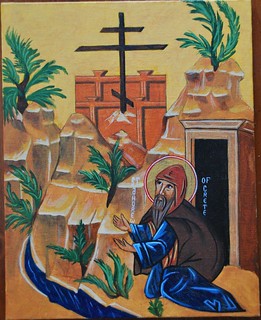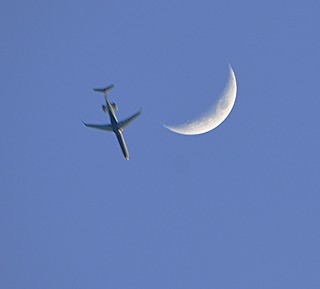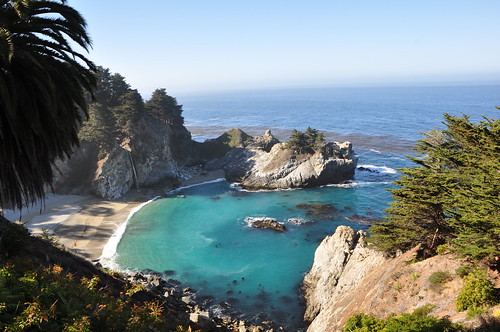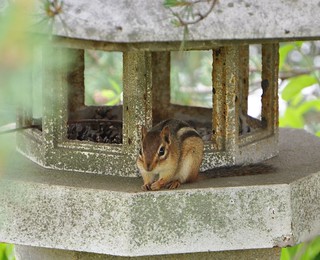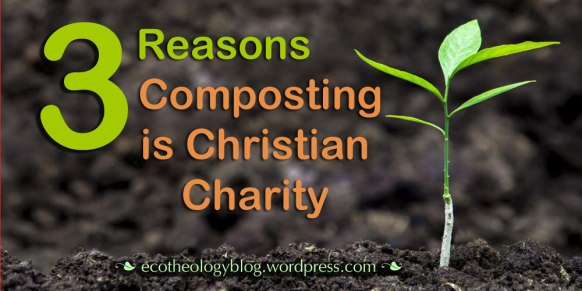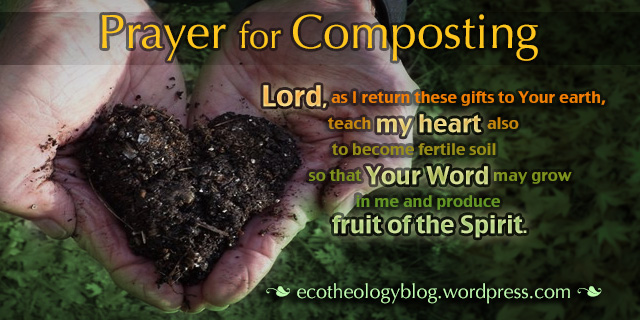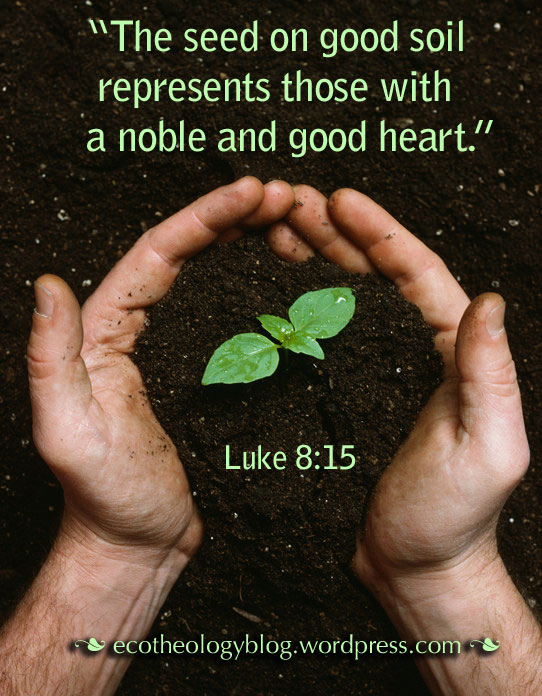Today, in the intense political aftermath of the USA inauguration, seems like a good time to blog about “The World.”
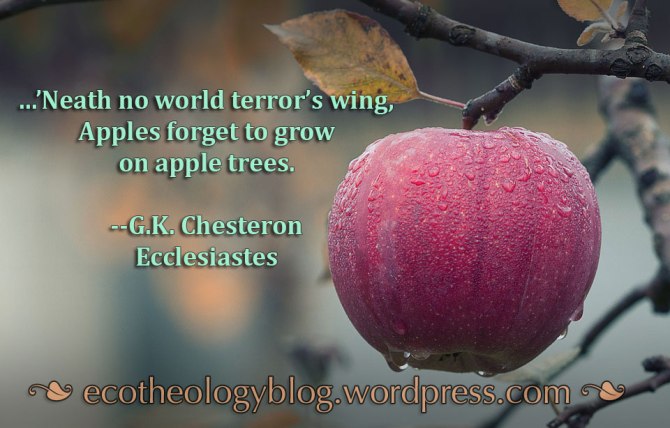
Scripture tells us a lot about how we, as residents of the Heavenly Kingdom, relate to ‘the World.’ Particularly that we must reject it, not conform to it, and not trust it. For nonbelievers in particular, these passages seem to indicate that Christians therefore do not value the Natural World, the Earth. If that were true, this blog would have no purpose.
But of course it isn’t true. The New Testament language does not confuse one for the other, and is much more clear about the difference between World and Earth and why rejecting The World is actually essential to valuing the Earth. But, like other essential Biblical concepts (including Love), there’s a subtlety in the original language that is more easily overlooked after translation. What we often read in English language bibles as “The World” is actually several different words. Let’s start with a tour of Greek synonyms…
Gaia
Gaia is a Greek term (favored by New Age circles) that refers to the actual stuff you’re standing on. The dirt, the landscape, a country’s boundaries. Gaia is not really used in any particularly sentimental or spiritual way in the New Testament. It’s natural material. Gaia is not the stuff that Christians are taught to reject, at any point.
Aeon
When Paul teaches “Be not conformed to The World” (Romans 12:2) he is not saying anything about the Earth, but uses the word Aeon. Aeon is a time, but not seconds or hours. As in The Times, like “the times, they are a changin’.” The age we are in, the momentary trends, what’s popular and fashionable for a group of people. We say “Generation X” or “The Millennial Generation” but the Greeks might have said “Aeon X” or “Aeon Millennial.” Aeon is ‘the world’ of culture a generation has created, the social structure of the moment. That’s why in the parable of the sower, Christ tells us that the seed choked out by the thorns represents the soul overcome by the “worries of this aeon” (Mat 13:22). Being worldly, in the sense of aeon, is tantamount to being trendy. Worldly-ness is living up to the expectations of the current aeon, instead of the expectations of God. Rejecting the aeon is not rejecting any material or natural thing– like Earth; it is only rejecting a social fashion.
Kosmos
Other biblical teachings to reject The World use a similar concept represented by the Greek word kosmos. Personally, I have a hard time hearing “cosmos” without imagining planets, stars, and asteroids, but kosmos is more general, indicating any kind of structure or order of many parts. That can be the structure/kosmos of the planets, or the structure/kosmos of society. When we speak of ‘cosmetics’ or ‘cosmopolitan,’ we mean ‘orderliness’ of beauty or city. In the New Testament, kosmos is most often used in the context of a social order that is structured in a way that is separate from God. That is why James teaches us not to be polluted by this kosmos (James 1:27), and that friendship with this kosmos is hostility toward God (4:4). Similarly Paul says the wisdom of this kosmos is foolishness (1 Corinthians 3:19). Christ came into this kosmos, and it is this kosmos that did not recognize Him (John 1:10). The Gospel of John tells us that God chose us out of the kosmos, and so the kosmos hates us. But what’s more, while John makes it clear that Christians are not of this kosmos (John 15:19), it is significant that we still are of the earth, the dust (Ecclesiastes 3:20).
This social kosmos is created by humans; this aeon is created by humans. As such, they are fallen orders and deeply flawed. We are meant to reject the world, not participate, not put trust this aeon’s culture or its princes and kings (Psalm 146:3), or presidents, for that matter.
Kitsi
But, on the other hand, the New Testament also teaches us about Kitsi. Kitsi is the Creation of God. It is all that He made, all inclusive–Earth and sky, fire and water, ants and trees, angels and humans, visible and invisible, mortal and immortal. We are not to reject what God has created, what God called “Good” (Genesis 1). The kitsi, and its clods of gaia, are right alongside us, praising God, anticipating His return and waiting to be freed (Romans 8:22). We do not trust in Creation, but see it and are reminded of the Creator (Romans 1:20, Psalm 146:3-6), and so Christians and Creation reach together toward God, singing His glory (Luke 19:40).
The question on many Christian’s hearts is– how do we live in the aeon but not be of the aeon? How do we vote our Christian conscience and steward our wealth in Godly ways? Those are very important questions. But my question, for this blog, is to explore how do we relate to the Kitsi? How does God bless all Creation, how do we lift it back up to Him in gratitude and communion, and how do we interact with kitsi in Godly ways?
While New Testament authors understood the difference between “The World” (aeon/kosmos) and “The Earth” (gaia/Kitsi), but we find in our modern society that human society and the natural environment are often put at political odds. How did this aeon get into such a political hubub about gaia? The political heat of gaia vs this current human society, comes down to the question of what responsibility does “the world” (aeon; governmental structures, human society, collective imagination) have toward “the earth” (gaia; this particular piece of Creation God looked at and called ‘Good’).
Some social philosophies say ‘the world’ is responsible only for worldly things—finances and economy, roads, cars, banks, and protection of individuals’ property, and that “nature” can be taken care of by green hobbyists, or else take care of itself. Environmentalists on the other hand think the current governmental order / kosmos is responsible also to steward Kitsi –natural resources, ecosystem health, thriving wild animal populations, etc., and that the government is equally responsible to protect common ecosystems as it is private property. But whatever your opinion about what level of responsibility ‘the world’ owes the Earth, the living Christian person owes the Earth the responsibility that God designated for us—to be Creation’s priest.
This will be the topic of my next blog post: exploring God’s direct command to us regarding His Kitsi. We’ll switch from Greek to Hebrew, to talk about the book of Genesis and the what and why of His command to Avad and Shamar the Earth.
In the meantime, I offer you this line from Catholic poet GK Chesterton, which gives me great comfort in times when the world (aeon) is making me crazy:
…’neath no world terror’s wing,
apples forget to grow on apple trees.
– G.K. Chesterton, Ecclesiastes
So, amid the chaos of the current political kosmos, I insist on earth-based Christian practices and prayers even more. I will do my best to love my neighbors, whether or not I like them or their politics, and while I am caught up in the kosmetic wars of this aeon all around me, I will relentlessly participate in God’s original call to humans– to Shamar the Earth. For today, I’ll be outside mulching my apple trees.
Save
